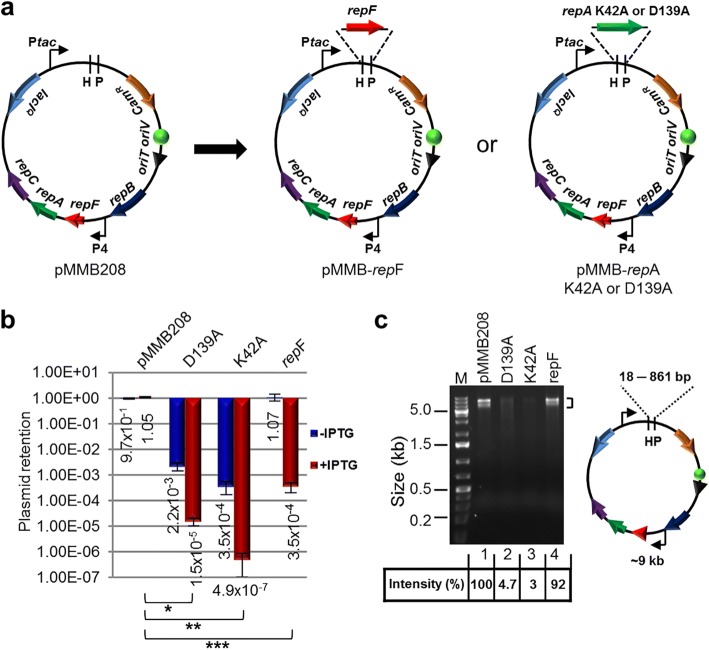Fig. 1.
IPTG-controlled conditional suicide plasmids. a Plasmid pMMB208 and its conditional-suicide derivatives. pMMB208 contains an RSF1010 oriV for replication and an oriT for conjugation. Genes repA, mobA/repB and repC encode proteins required for plasmid replication, and repF encodes a transcription repressor that binds promoter P4. pMMB208 also has CamR and lacIQ genes and a Ptac promoter. Plasmid pMMB-repF is a derivative of pMMB208 that has a second copy of the repF gene inserted downstream of Ptac. Plasmids pMMB-repAK42A and pMMB-repAD139A have a dominant-negative repA mutant gene, either K42A or D139A, inserted downstream of Ptac. b Amount of E. coli DH10B cells retaining the indicated plasmids after 24 h growth in the absence of antibiotics, either with or without IPTG induction. Results were average of three independent experiments, and bars represent mean ± SD (standard deviation). *p < 0.0001, **p < 0.0001, and ***p < 0.0001 by unpaired Student’s t-test for IPTG induced cultures. c pMMB208 and its derivatives are digested with HindIII (H) and PstI (P). Comparing to pMMB208 and pMMB-repF, the repA K42A and D139A mutants showed reduced yields in plasmid minipreps (no IPTG induction; 3.0% and 4.7% of that of pMMB208, respectively). HindIII and PstI digestion generates two fragments for each plasmid. The ~ 9 kb fragment is seen on the gel, while the shorter ones, ranging from 18 bp for pMMB208 to 861 bp for the repA mutants, are not visible. Another large band (~ 9 kb) is also seen in restriction digestion of pMMB208 and its derivatives, even after complete digestion, and the cause is unknown

